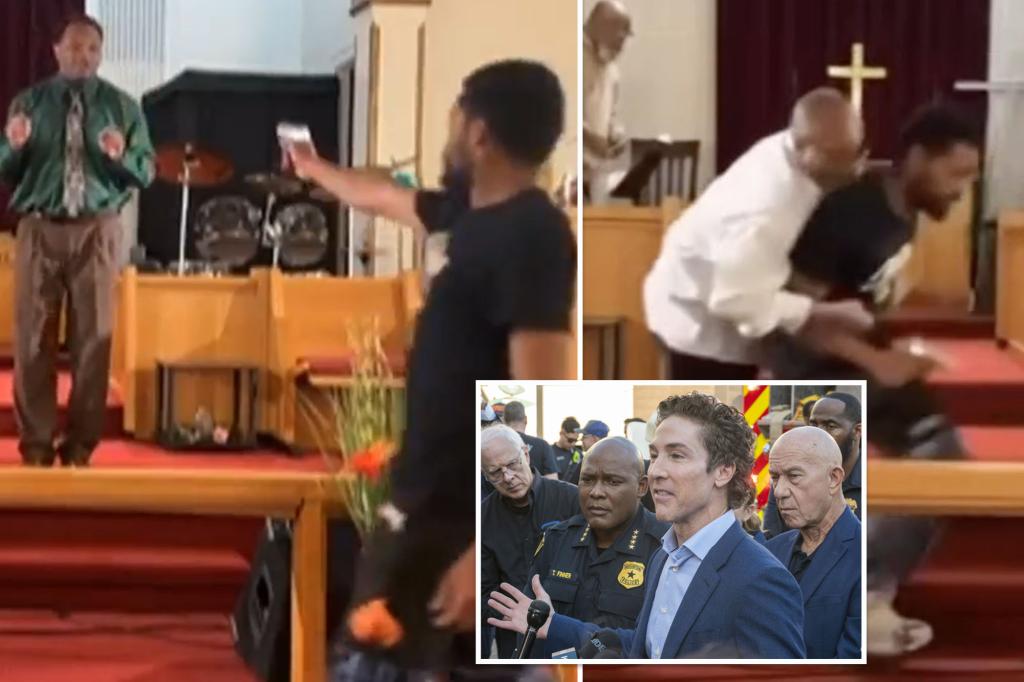Security experts are growing increasingly concerned about the safety of U.S. churches following two recent attempted shootings at houses of worship. Interest in implementing additional safety measures in congregations is on the rise. In a Pennsylvania church, a man tackled an armed individual who attempted to shoot the pastor during a sermon, preventing a potential tragedy. Additionally, in Louisiana, parishioners stopped a gun-toting teen from harming children during a First Communion Mass. These incidents highlight the need for churches to be prepared for emergencies and active shooter situations, as recommended by the Department of Homeland Security and FEMA.
The government offers resources such as security self-assessment checklists and grants for nonprofit security to help cover the costs of physical safety measures for churches. Local governments also provide safety training programs for houses of worship. Churches are increasingly turning to security guards, whether armed or unarmed, and may consist of volunteers or licensed professionals. Interest in enhancing security measures is growing across megachurches and small independent places of worship, with congregations recognizing the importance of being prepared for potentially dangerous situations.
David Katz, CEO of Global Security Group, notes that armed volunteer security at houses of worship is becoming more common. Katz, a former agent with the U.S. DEA, began training volunteers at his own synagogue after concerns of violence following certain events. He emphasizes the importance of training worshippers to protect themselves even if they cannot afford to hire full-time armed security. While some states allow churches to form their own security teams, laws and regulations may hinder churches in other areas from implementing certain security measures, such as an all-volunteer security team.
Pat Brosnan, founder of Brosnan Risk Consultants, explains that widely varying laws in different communities impact the security measures churches can implement. The security industry faces challenges such as regulations, training requirements, and high insurance costs. However, the visual presence of guards can act as a deterrent to potential threats. Brosnan highlights the importance of deterrence in preventing violent incidents, noting that many individuals who may pose a threat are ultimately cowards. Some churches may opt to have guards during service hours and special events only, due to cost constraints. Brosnan emphasizes the bravery of individuals who act to save lives in critical situations.
While additional security measures at churches can help prevent violence, the actions of brave individuals such as Clarence McCallister, who tackled an armed individual during a church service, are also commendable. Good Samaritans and quick-thinking parishioners have played a crucial role in preventing potential tragedies in recent incidents. Brosnan stresses the importance of caution and training in responding to dangerous situations, but acknowledges that sometimes there may be no other option. Churches are urged to prioritize safety and preparedness, whether through professional security services, volunteer security teams, or active shooter response training to ensure the safety of congregants and prevent violent incidents within houses of worship.


